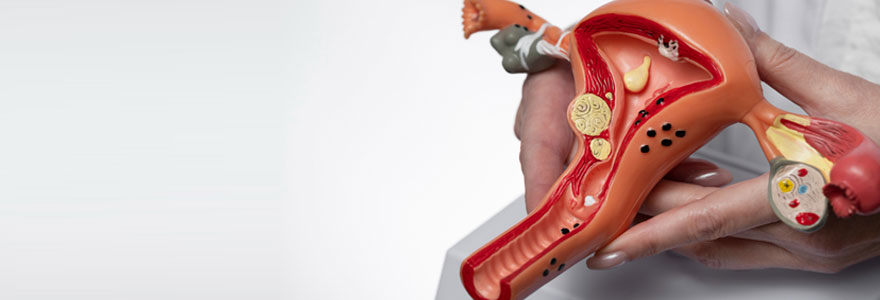Gynecological Endocrine Disorders

Gynecological endocrine disorders involve disruptions in the normal functioning of the endocrine system, which plays a crucial role in regulating hormones related to the female reproductive system.
some common features and symptoms of Gynecological Endocrine Disorders include:
- Polycystic Ovary Syndrome (PCOS):
Features: Irregular menstrual cycles, high levels of androgens (male hormones), and the presence of multiple small cysts on the ovaries.
Symptoms: Infrequent or prolonged menstrual periods, excess hair growth, acne, and fertility issues.
- Endometriosis:
Features: Presence of endometrial tissue outside the uterus, typically on the pelvic organs.
Symptoms: Pelvic pain, painful menstruation, pain during intercourse, and fertility problems.
- Premenstrual Syndrome (PMS):
Features: A combination of physical and emotional symptoms that occur in the luteal phase of the menstrual cycle.
Symptoms: Mood swings, bloating, breast tenderness, and irritability.
- Amenorrhea:
Features: Absence of menstrual periods.
Symptoms:Primary amenorrhea (absence of menstruation by age 16) or secondary amenorrhea (cessation of menstruation in a woman who previously had regular periods).
- Dysmenorrhea:
Features: Painful menstrual periods.
Symptoms: Cramping, lower abdominal pain, and discomfort during menstruation.
- Hyperprolactinemia:
Features: Elevated levels of prolactin, a hormone that stimulates milk production.
Symptoms: Irregular menstrual cycles, milky discharge from the breasts (galactorrhea), and fertility issues.
- Hypothyroidism:
Features: Underactive thyroid gland.
Symptoms: Fatigue, weight gain, cold sensitivity, irregular menstrual cycles, and fertility problems.
- Hyperthyroidism:
Features: Overactive thyroid gland.
Symptoms: Weight loss, rapid heartbeat, anxiety, irregular menstrual cycles, and heat sensitivity.
- Premature Ovarian Insufficiency (POI):
Features: Loss of ovarian function before the age of 40.
Symptoms: Irregular or absent periods, hot flashes, and infertility.
